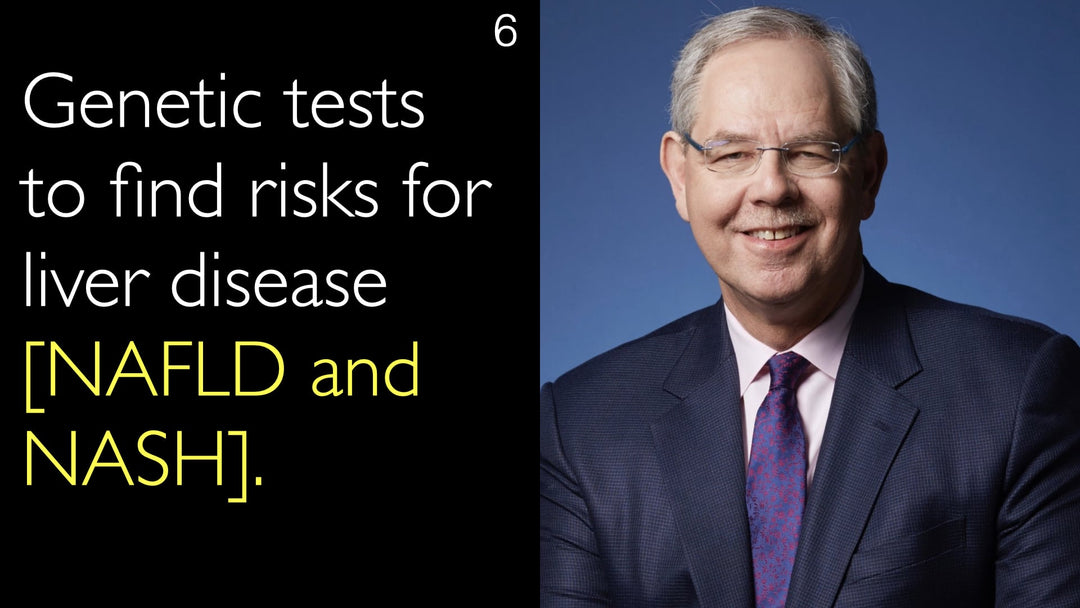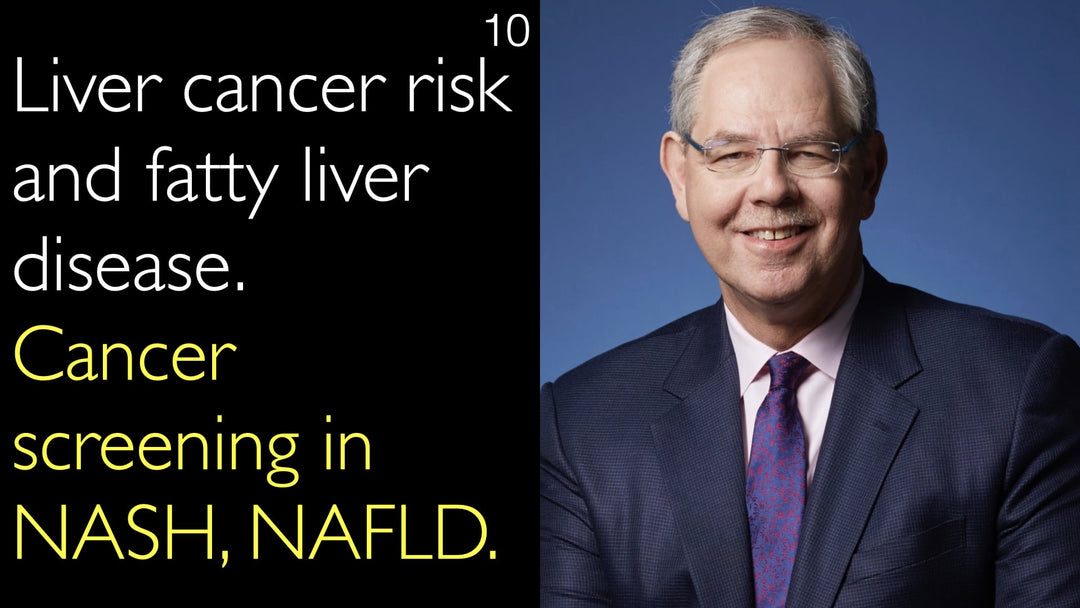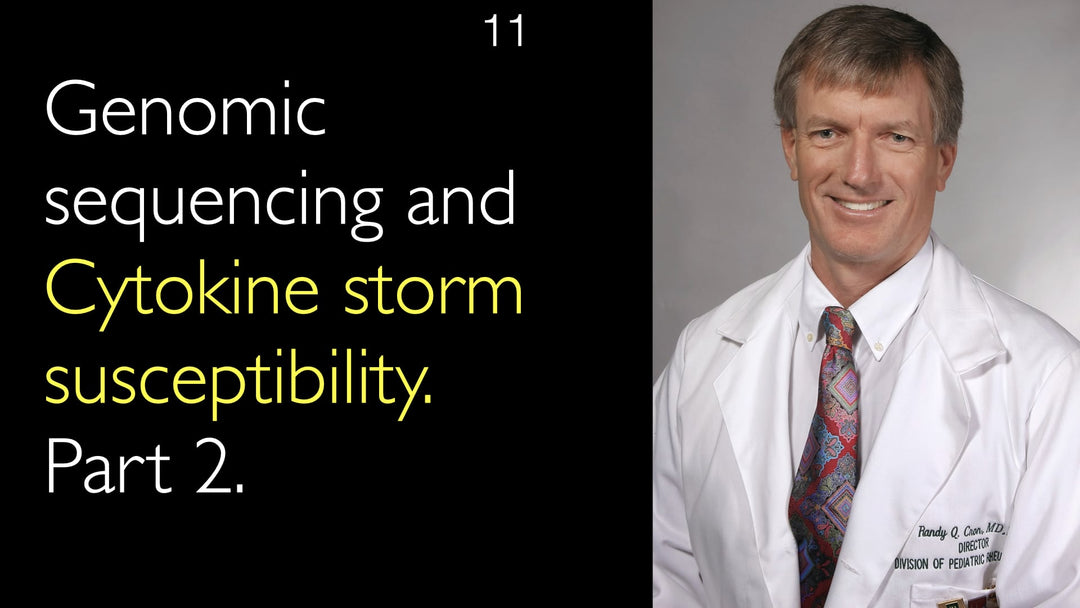Leading expert in gastrointestinal cancers, Dr. C. Richard Boland, MD, explains how chronic inflammation dramatically increases cancer risk throughout the digestive system, particularly in conditions like ulcerative colitis, primary sclerosing cholangitis, and chronic pancreatitis. He details the biological mechanisms linking inflammation to cancer development and discusses emerging biomarkers that may help predict high-risk patients.
Chronic Inflammation and Cancer Risk: How Gut Conditions Lead to Gastrointestinal Cancers
Jump To Section
- The Inflammation-Cancer Connection in GI Disorders
- Ulcerative Colitis and Colorectal Cancer Risk Factors
- How Inflammation Triggers Cancer Development
- Distinct Cancer Features in Inflammatory Bowel Disease
- MicroRNA Biomarkers for Cancer Prediction
- When to Consider Preventive Colon Removal
- Full Transcript
The Inflammation-Cancer Connection in GI Disorders
Chronic inflammation significantly elevates cancer risk throughout the gastrointestinal tract, as explained by Dr. C. Richard Boland, MD. Conditions like ulcerative colitis, primary sclerosing cholangitis, and chronic pancreatitis create persistent inflammatory environments that promote cancer development. Dr. C. Boland, MD, emphasizes that inflammation acts through multiple pathways to increase gastrointestinal cancer risk.
Specific inflammatory conditions correlate with particular cancers: ulcerative colitis raises colorectal cancer risk, primary sclerosing cholangitis increases bile duct cancer (cholangiocellular carcinoma) likelihood, and chronic pancreatitis elevates pancreatic cancer risk. These associations demonstrate the systemic impact of chronic inflammation on cancer development.
Ulcerative Colitis and Colorectal Cancer Risk Factors
Patients with ulcerative colitis face substantially higher colorectal cancer risks compared to the general population. Dr. C. Richard Boland, MD notes that the duration and extent of colonic inflammation directly correlate with cancer risk. The continuous cycle of injury and repair in the inflamed colon creates an environment ripe for malignant transformation.
Dr. C. Boland, MD, explains that cancer risk begins increasing significantly after 8-10 years of disease activity, particularly in patients with pancolitis (inflammation affecting the entire colon). Regular surveillance colonoscopies become crucial for early cancer detection in these high-risk patients.
How Inflammation Triggers Cancer Development
Dr. C. Richard Boland, MD describes three key mechanisms by which chronic inflammation promotes cancer. First, inflammatory processes generate free radicals that damage DNA, creating mutations that can lead to cancer. Second, attracted inflammatory cells release cytokines that amplify immune responses abnormally.
Third, growth factors released during inflammation stimulate tumor cell proliferation. "It's like the worst of all situations," Dr. C. Boland, MD, explains. "Inflammation makes free radicals causing mutations, while growth factors fan the flames of tumor growth." This combination creates a perfect storm for cancer development in chronically inflamed tissues.
Distinct Cancer Features in Inflammatory Bowel Disease
Cancers arising in ulcerative colitis patients exhibit unique molecular characteristics different from sporadic colorectal cancers or Lynch syndrome tumors. Dr. Boland's research has identified that these tumors often show features of the CpG Island Methylator Phenotype (CIMP) and have particularly aggressive behavior.
The molecular signature of colitis-associated cancers suggests they develop through different pathways than other colorectal cancers. Dr. C. Richard Boland, MD notes these tumors frequently appear at younger ages and may progress more rapidly, requiring specialized monitoring and treatment approaches.
MicroRNA Biomarkers for Cancer Prediction
Exciting research from Dr. Boland's laboratory has identified distinct microRNA patterns present throughout the colon in chronic ulcerative colitis patients. These molecular signatures may eventually help predict which patients will develop cancer, allowing for earlier intervention.
Dr. C. Richard Boland, MD explains that such biomarkers could revolutionize surveillance strategies. "If we can identify high-risk patients earlier, we can recommend preventive measures like colectomy before cancer develops," he states. This precision medicine approach could significantly improve outcomes for ulcerative colitis patients.
When to Consider Preventive Colon Removal
For ulcerative colitis patients with chronic inflammation, Dr. C. Boland, MD, discusses the importance of timing preventive colectomy. When biomarkers or surveillance indicate high cancer risk, early colon removal may be preferable to waiting for cancer development.
Dr. C. Richard Boland, MD emphasizes that decision-making should balance cancer risk against quality of life considerations. "If we know cancer may develop soon in a chronically inflamed colon that needs resection eventually, removing it sooner rather than later can be life-saving," he explains. This proactive approach reflects growing understanding of inflammation's cancer-promoting effects.
Full Transcript
Dr. Anton Titov, MD: Inflammation increases the risk of many cancers. Ulcerative colitis affects risk for colon cancer. How can we reduce the risk of cancer?
Dr. C. Boland, MD: Inflammation can increase risk in hereditary colon cancer. Ulcerative colitis increases colon cancer risk. Primary sclerosing cholangitis increases the risks of bile duct cancer, cholangiocellular carcinoma. Chronic pancreatitis raises pancreatic cancer risk.
Dr. C. Boland, MD: Gastrointestinal cancers, including colorectal cancer, have many genetic and environmental causes. But two other very important factors play a role in gastrointestinal cancer development. One of them is inflammation. Chronic inflammation in gastrointestinal tract increases frequency of cancer. Colorectal cancer is increased in ulcerative colitis. Primary sclerosing cholangitis increases the risks for the bile duct cancer, cholangiocellular carcinoma. And chronic pancreatitis raises pancreatic cancer risk.
Dr. Anton Titov, MD: How does inflammation increase the risk of gastrointestinal cancers? How does inflammation increase the risk of colorectal cancer if inflammation happens in the intestines?
Dr. C. Boland, MD: Chronic inflammation in almost every gut organ increases cancer risk. Inflammation in distal esophagus leads to "Barrett's esophagus" and esophageal cancer. Chronic gastritis and infection with Helicobacter pylori increases risk for gastric cancer. Even chronically inflamed small intestine - in celiac disease and ulcerative colitis - leads to increased cancer risk.
Every time there is chronic inflammation, there's an increased risk of cancer. What happens is that the inflammatory process does several things. Not just one thing!
First, the inflammatory processes itself generates free radicals that damage DNA. So inflammation is mutagenic. The second thing is that the inflammation attracts many inflammatory cells, which then release cytokines and growth factors.
Cytokines amplify the immune response. Growth factors also make tumor cells grow too. If you passively put inflammatory cells into an early tumor, cancer could start to grow faster due to these inflammatory cells inside the tumor.
Dr. C. Boland, MD: It's interesting that colon cancers in patients with ulcerative colitis are a bit different from Lynch syndrome colorectal cancer tumors. They have some features of CIMP [CpG Island Methylator Phenotype]. But colon cancers in patients with ulcerative colitis are completely different. They are very aggressive tumors and they have a slightly different genetic signature.
Our laboratory and others have found a distinct microRNA signature that is present throughout the colon in people with chronic ulcerative colitis. It might be able to predict which people with ulcerative colitis are at high risk of colon cancer.
It might be nice if you could intervene based on this. If a person with a chronically inflamed colon that needs to be resected eventually, if we know that cancer may develop soon, we should remove the colon sooner rather than later.
So I think that little by little we understand more how to use our discoveries in genetics of bowel cancer. But we understand that when there is inflammation, there is mutagenesis. You have growth factors making tumors grow. So it's really a bad situation in the case of chronic inflammation.
Dr. C. Boland, MD: Several factors, including free radical formation, compound the risk for cancer in chronic inflammation. All these factors drive cancer risk and its growth in chronic inflammation.
It's like the worst of all situations. Inflammation makes free radicals and the mutagenesis causes more mutations. Then you have these other growth factors coming in and fanning the flames of cancer tumor growth. It's really a very maladaptive situation in the gut when chronic inflammation is present.







